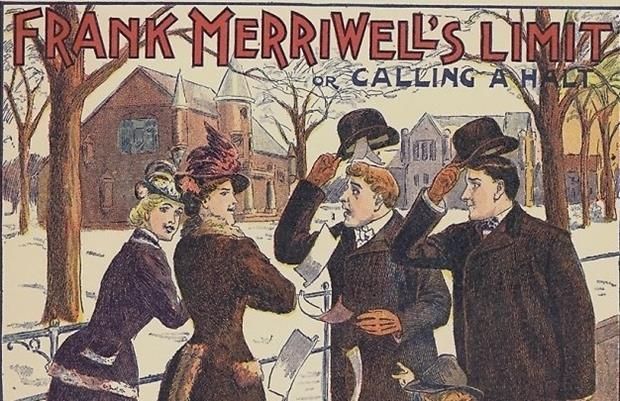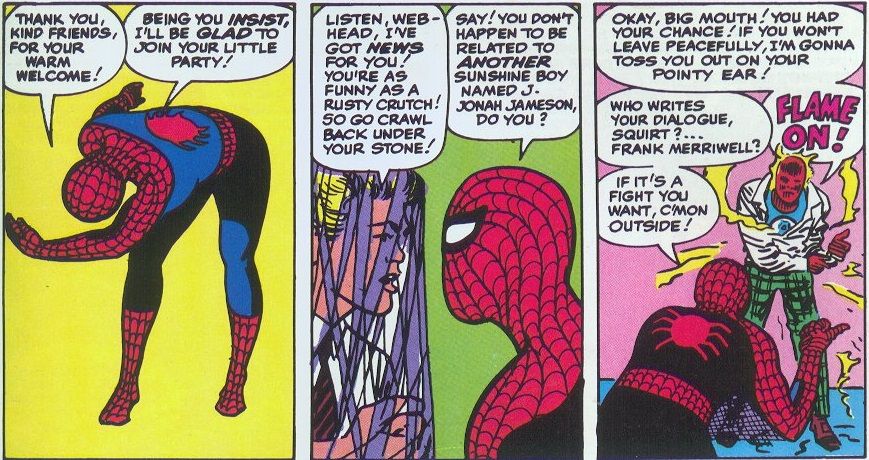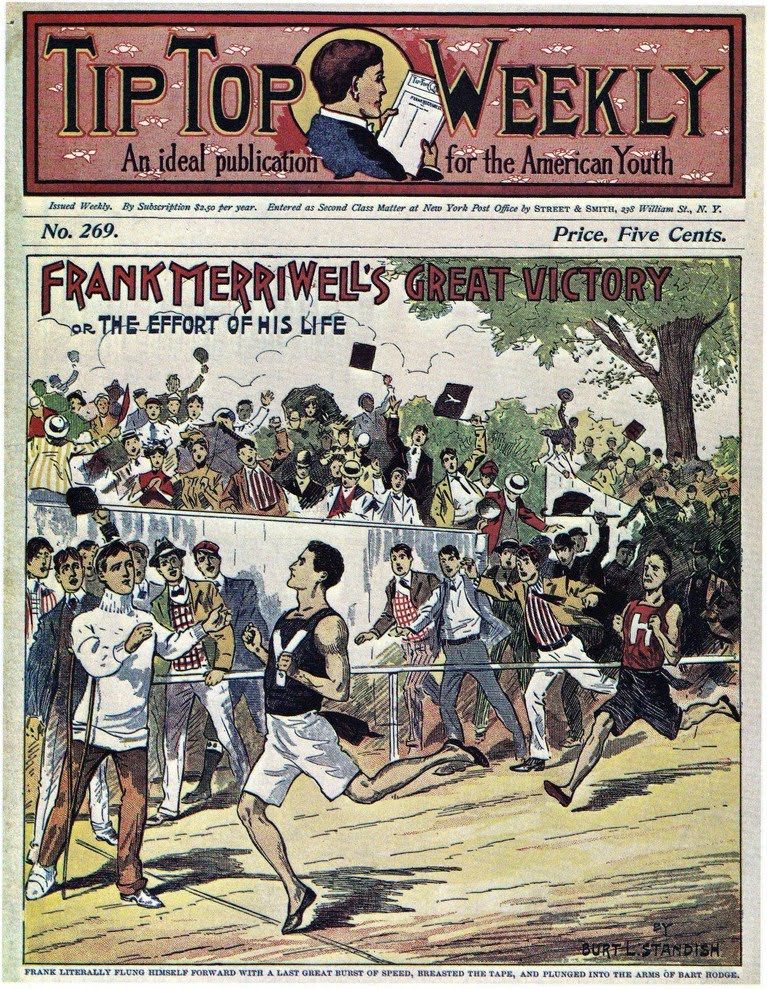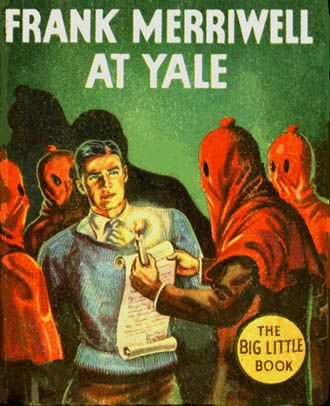This is the latest in a series giving you the cultural context behind certain comic book characters/behaviors. You know, the sort of then-topical references that have faded into the "foggy ruins of time." To wit, twenty years from now, a college senior watching episodes of Seinfeld will likely miss a lot of the then-topical pop culture humor (like the very specific references in "The Understudy" to the Nancy Kerrigan/Tonya Harding scandal). Here is an archive of all the Foggy Ruins of Time installments so far.
Today we take a look at an early Spider-Man reference to one of the most popular fictional characters of the early 20th century.
In Amazing Spider-Man #8, in the back-up story drawn by Jack Kirby (inks by Steve Ditko), Stan Lee has Spider-Man cause trouble for the Human Torch. They're bickering back and forth when Spider-Man says the following...
That is a reference to the famed fictional character Frank Merriwell, the most famous creation of novelist Gilbert Patten, who wrote the character using the pen name of Burt L. Standish. Merriwell was a young man whose adventures were featured in the young men's weekly Tip Top Weekly, where Patten would write mini-novels every week (for well over fifteen years!) starring the All-American, pretty much perfect Merriwell (even his name describes is perfect - he is frank, he is merry and he is always in good shape).
These popular stories would then be collected into novels....
Now, you might be asking yourself, "Huh? Even though I now know that Frank Merriwell was a popular star of juvenile novels during the late 19th Century and early 20th Century, that still doesn't make Spider-Man's dialogue make sense."
That's where this gets really obscure. You not only have to know who Frank Merriwell is, but you have to know that the Merriwell stories, while massive successes, were famous for their terrible dialogue. Here is a snippet of Frank's dialogue from "Frank Merriwell's Limit" (the story featured at the top of this piece today) where Frank gets angry at a man who is intentionally trying to ruin Frank's reputation as well as that of some of his female classmates by spreading rumors about them engaging in some improprieties (telling people Frank is a regular devil with the ladies):
"There," said Frank, as he stood the caddish little wretch on his feet, "that's just a taste of what you really deserve, and it's a warning, of what you'll get if I ever hear you mention those young ladies again! You have told your dirty stories about me till you have reached the limit, along with the rest of your set. Go tell them what has happened to you, and tell them what has happened to you, and tell them I'll serve them one and all the same if they give me reason."
That's not an accidental duplication at the end, that's really how characters talked in Merriwell stories. Lots of run-on, repetitive and downright poorly put together quotes.
Patten actually conceded that his dialogue was poor, but explained that it was due to the format. He had to write a 20,000 story EVERY WEEK. All the typing of the stories began to hurt his fingers, so he began to just dictate his stories to a stenographer. It is here that Patten tried to explain what the problem was:
The diction scheme accounts for one thing that many people laugh about in the Merriwell stories - a stitlted effect in the style and a touch of artificiality in the dialogue. I guess the charge is true. But you shoot 50,000 words a day at a stenographer, and when she transcribes her notes, see how fleixble and natural it sounds. Easy style and nice, homely dialogue are possible only when you have a chance to shine up your work. No chance for that doing the Merriwells. That was rough-and-ready writing, and if you couldn't do it that way, you couldn't do it at all.
So there you go, it was all just a roundabout way for Spidey to insult the Human Torch!




